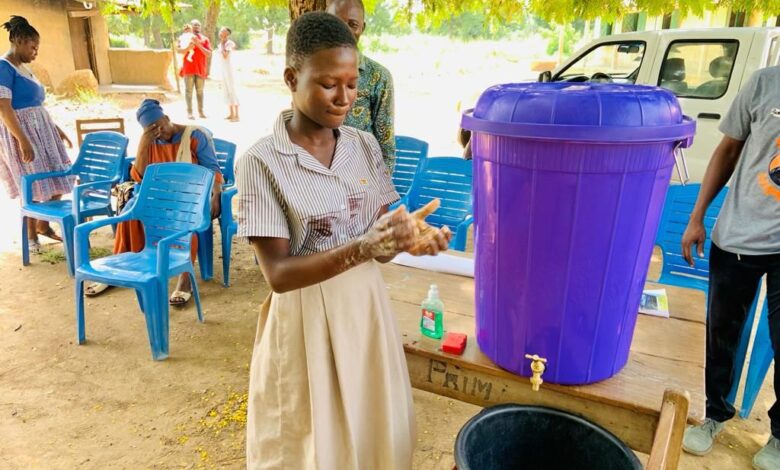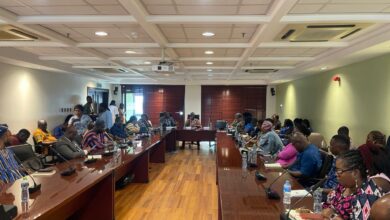Greater majority of Ghanaians have reduced hand hygiene practices after the COVID era – CONIWAS
Greater majority of Ghanaians have reduced hand hygiene practices after the COVID era - CONIWAS

The Coalition of NGOs in Water and Sanitation (CONIWAS), has revealed that a greater majority of Ghanaians have reduced hand hygiene practices after the COVID-19 era.
This revelation was contained a press statement issued by CONIWAS as Ghana joined the rest of the world to mark the 2023 Global Handwashing Day which is on the theme; “Clean hands are within reach.”
According to the Coalition, Ghana made a lot of strides in hand hygiene during the COVID-19 pandemic. It said hand washing facilities were found in many public places such as shops, lorry stations, and markets.
Again, institutions put in place effective measures to ensure proper handwashing was practiced while individuals promoted hand washing with soap in their homes due to the fear of contracting COVID.
“Despite all these gains, a greater majority of Ghanaians have reduced hand hygiene practice after the COVID era, with many public places and institutions showing poor attitudes toward ensuring handwashing since. It has become a common practice for people to walk past handwashing facilities in an institution or shop without practicing proper handwashing. Promoting behavioral change and encouraging regular handwashing with soap and water remains a challenge, as awareness and sensitization efforts are primarily focused on global celebration,” portions of the statement pointed out
According to the coalition, this year’s theme calls on everyone to play a role to ensure clean hands are within reach.
A report from UNICEF (2022), shows that access to basic hygiene services in Ghana is 42%, with 22% of the households having no hand washing facility.
The report indicates that hand hygiene services are higher in urban areas; where 47% of households have access to basic hygiene services, compared to only 35% in rural areas.
The assessment also indicates that 54% of schools in Ghana have access to basic services with higher levels of service in urban areas (65%) than in rural schools (45%).
Almost half of schools, in rural areas, were without facilities (46%). About 62% of healthcare facilities had access to only basic services and 3% had no facilities.
To effectively promote handwashing, the Ministry of Sanitation and Water Resources, in collaboration with partners, has developed the Hand Hygiene for All Strategy.
This strategy aims to raise awareness and emphasize the importance of hand hygiene practices among the population of Ghana. It includes promoting regular handwashing with soap and water, and the use of alcohol-based hand sanitizers.
Additionally, the strategy focuses on improving access to handwashing facilities in public places, schools, healthcare facilities, and households by providing the necessary infrastructure and resources.
However, according to CONIWAS, the implementation of this strategy is currently limited to a few partners operating in selected districts and regions in Ghana. To ensure nationwide coverage, it is crucial to disseminate the strategy and enable its implementation across the entire country.
“As we celebrate this year’s Global Handwashing Day, CONIWAS would like to urge the Ministry of Sanitation and Water Resources to expedite its efforts in collaboration with the Ministry of Local Government and the Head of the Local Government Service to ensure a collaborative effort to disseminate the hand hygiene strategy to all districts and regions.
It is therefore imperative to ensure all Assembly staff especially the environmental health officers and WASH partners in all districts understand and are able to implement the key approaches in the hand hygiene strategy.
We believe this comprehensive approach will help promote hand hygiene practices in all districts.
We also want to use this opportunity to call on the Ministry to take steps to initiate the development of the National Hygiene strategy which not only incorporates the hand hygiene strategy but will deal with other hygiene issues such as Menstrual Hygiene management among others.
CONIWAS would like to remind all citizens to continue practicing handwashing to prevent contamination and the spread of infectious diseases.” Portions of the statement read.




